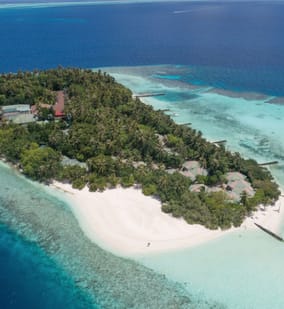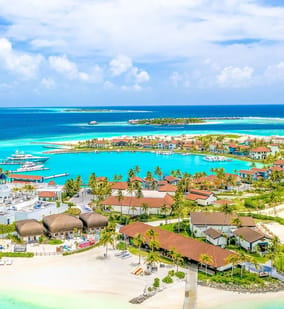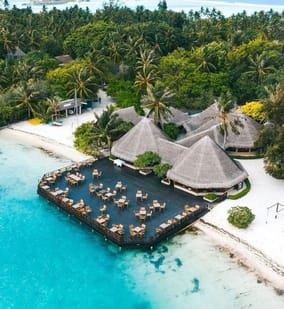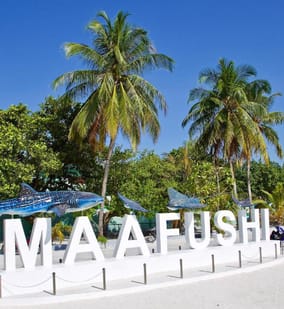Zero-Plastic: How The Maldives is Cleaning Up Its Ocean
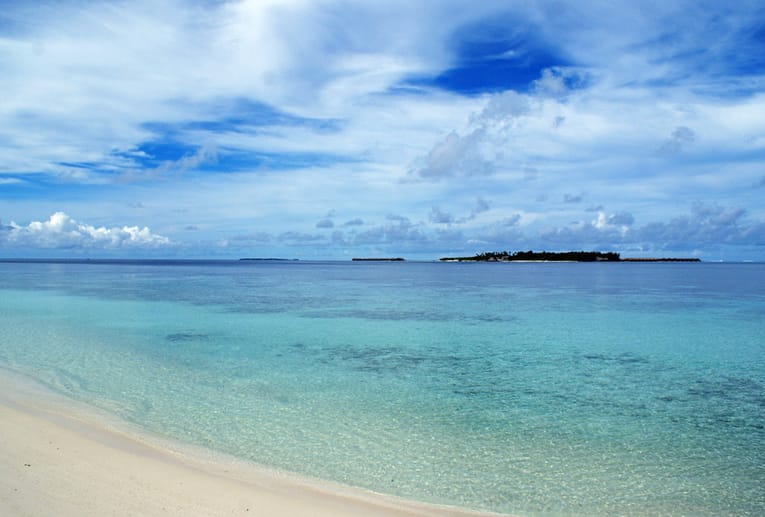
The Maldives is aiming to become a global leader in sustainability after announcing new measures to tackle plastic waste.
The Maldives government has passed an ambitious law to ban single-use plastics nationwide by 2025 and has also banned the import of plastic bags.
And earlier this year, Addu City Council passed a resolution banning single-use plastics in the southern atoll from June 2020.
A growing number of islands have already gone plastic-free, with the movement spearheaded by school children and individual campaigners.
Pollution in the oceans is a global problem, and even the stunning shores of the Maldives’ coral islands have not escaped the tide of plastic litter. According to UNICEF, 280,000 plastic bottles are used and discarded daily in the capital city of Malé alone, and 104 million plastic bags were imported to the Maldives in 2018.
A huge amount of this plastic ends up in the ocean, where it is a danger to marine life. Much of it is washed ashore, spoiling the Maldives’ famous pristine beaches, or ends up being burned, producing harmful carbon emissions.
Widespread recycling facilities to help address the plastic problem have been lacking in the Maldives, but new initiatives are emerging.
State-run Waste Management Corporation (WAMCO) has recently collaborated with Parley for the Oceans – an environmental organisation dedicated to reducing ocean plastic pollution – to establish a plastic recycling laboratory in Malé City, the first of its kind in the country.
The laboratory can process up to 100 kilos of plastic daily, turning it into phone cases, files and flowerpots.
In recent years, several resorts have adopted an eco-tourism approach, working to reduce their impact on the environment and carbon outputs.
Most of the resort islands in the Maldives are shining example of the plastic-free Maldives movement. Action so far has included replacing individual butter packets in the morning buffet with machine dispensers. In-villa mini bottles of shampoo and conditioner have been swapped for large refillable dispensers, and plastic straws have been switched to biodegradable ones. Also, some resort islands have replaced plastic keycards with wooden alternatives and plastic water bottles with refillable metal or glass.
As well as direct action and legislation, a big part of the solution is awareness and understanding of the problem among Maldivian locals and visitors.
In 2018 the Ministry of Education in the Maldives launched a nationwide ocean exploration programme for schools called Farukoe, with the aim to get every student snorkelling the beautiful, lively reefs of the Maldives before the end of that year.
By encouraging the younger generation to explore the oceans where they live, it is hoped they will become the voice for change in the future.
Thanks to this programme, and a ban on single-use plastics in schools, all schools in the Maldives have been plastic-free since April 2018.
Awareness-raising events such as the Zero Plastic Run are also helping highlight the issue of plastic in the ocean and engage people in the fight against it.
The Zero Plastic Run, a 5km run/walk in Hulhumale’, was launched in February 2019, and organisers have vowed to continue ‘until the Maldives becomes a zero single-use plastic nation’.
Proceeds from the event will be given to selected environmental NGOs for initiatives towards achieving the zero plastic goal.
All this positive action will help preserve the beauty of this island nation and the health of its ocean for generations to come.





